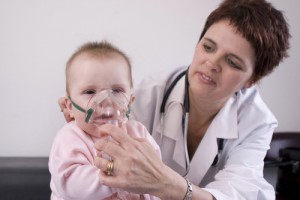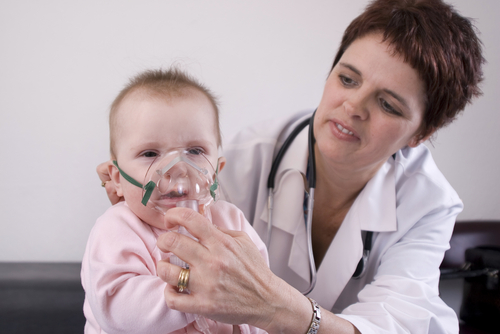 A recent study published in The Journal of Allergy and Clinical Immunology entitled, “Randomized trial to evaluate azithromycin’s effects on serum and upper airway IL-8 levels and recurrent wheezing in infants with respiratory syncytial virus bronchiolitis” revealed antibiotic azithromycin efficiency in reducing wheezing in children hospitalized as a result of respiratory infections, namely bronchiolitis caused by respiratory syncytial virus. Additionally, the antibiotic was suggested to also reduce the risk of asthma in these children.
A recent study published in The Journal of Allergy and Clinical Immunology entitled, “Randomized trial to evaluate azithromycin’s effects on serum and upper airway IL-8 levels and recurrent wheezing in infants with respiratory syncytial virus bronchiolitis” revealed antibiotic azithromycin efficiency in reducing wheezing in children hospitalized as a result of respiratory infections, namely bronchiolitis caused by respiratory syncytial virus. Additionally, the antibiotic was suggested to also reduce the risk of asthma in these children.
While it’s common for young children to be affected by respiratory infections early in life, more severe cases require hospitalization to monitor oxygen levels. This is usually the case with bronchiolitis caused by respiratory syncytial virus (RSV), a disease characterized by inflammation of lungs’ alveoli. Affected children with more severe cases can develop a whistling sound in the lungs — wheezing — and progress to asthma.
In this study, the authors sought to improve the wheezing in affected children who require hospitalization. Previous studies tried to reduce wheezing by administering drugs usually treated for asthma, the corticosteroids. However, its effect was considered insufficient in the case of bronchiolitis caused by RSV, since corticosteroids are suitable to treat inflammation triggered by allergies and not by viruses.
[adrotate group=”3″]
In this study, a team of researchers at Washington University School of Medicine in St. Louis aimed to discover new therapeutics for bronchiolitis caused by RSV. Previously, azithromycin (Zithromax), although usually prescribed as an antibiotic to treat respiratory infections caused by bacteria such as pneumonia, was reported to reduce inflammation in viral infections. The authors tested its effect, and administered azithromycin during the period of two weeks to 40 babies hospitalized with RSV bronchiolitis at the St. Louis Children’s Hospital. As a control group, other babies received a placebo drug. As a readout, the authors measured a marker for inflammation in patients’ blood and mucus and performed a follow-up wheezing episode monitoring up to a year. The authors found no differences in inflammatory markers in the blood, but significant reduced levels were observed in the nose mucus of azithromycin treated babies.
Avraham Beigelman, MD, an assistant professor of pediatrics who treats patients at St. Louis Children’s Hospital and the study’s first author noted, “We think the findings in nasal mucus may be most relevant because RSV is a disease of the airway rather than a systemic disease in the blood. We also showed that the children who received azithromycin had fewer days with any respiratory symptoms, including, wheezing, coughing and shortness of breath, over the following year.”
Finally, Beigelman added, “We are encouraged by these results, but we are very cautious given their preliminary nature. This treatment is definitely not ready for widespread or routine clinical use, since our findings must be confirmed in a much larger and longer trial. Furthermore, there are concerns about contributing to antibiotic resistance if this drug is prescribed unnecessarily. We are developing plans for a much larger study that will follow more patients for up to four years. We will see if we can replicate our initial results and determine whether the drug’s effect lasts over a few years.”

